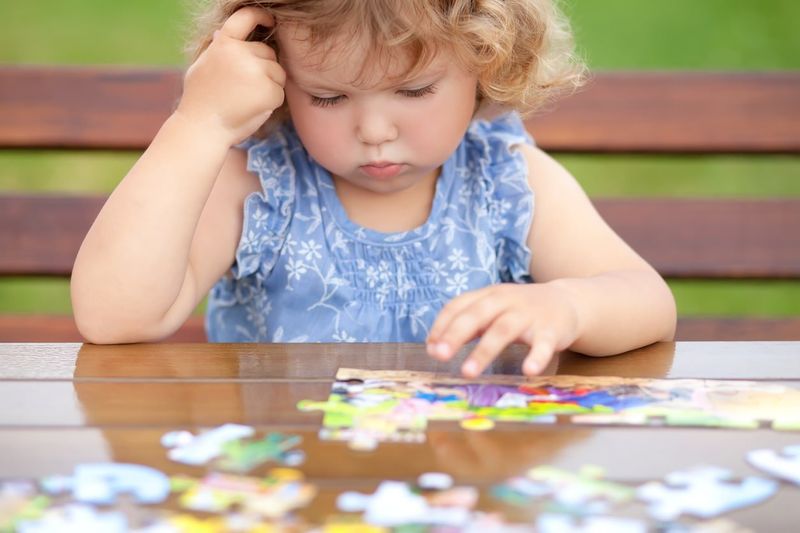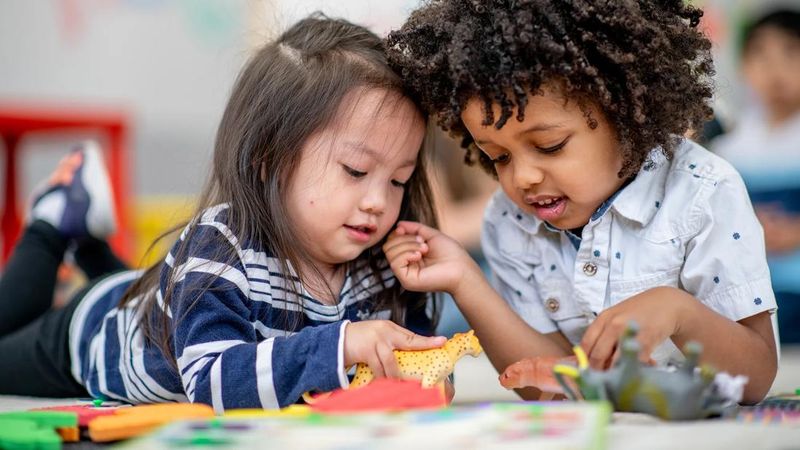Raising children is an incredible journey filled with surprises and moments of pride. You may not always notice it, but your parenting techniques might be nurturing emotionally intelligent kids, preparing them to navigate life’s challenges with empathy and understanding. Emotional intelligence in children manifests through their ability to recognize and manage their own emotions, as well as empathize with others.
Without even realizing it, your everyday actions and interactions can foster these critical skills. From encouraging open communication to modeling effective emotional regulation, you play a pivotal role in shaping your child’s emotional landscape.
1. Empathy in Action

When your child stops to comfort a friend in distress, they’re showcasing empathy. This ability to perceive and resonate with another’s emotions is a fundamental aspect of emotional intelligence.
Think of the times they’ve offered a hug or a kind word – these small gestures speak volumes about their capacity for compassion. Empathy isn’t just about feelings; it’s about understanding others’ emotional landscapes.
Encouraging this trait involves modeling empathy yourself. Share stories, discuss emotions openly, and praise their empathetic actions to reinforce this valuable trait.
2. Effective Communication

Imagine a lively discussion where your child articulates their thoughts clearly. This ability to communicate effectively is a sign of emotional intelligence.
They express feelings and thoughts without fear, using words to connect and clarify misunderstandings. Encouraging your child to share openly fosters this skill and builds their confidence.
At home, create environments where opinions are valued and listened to. Role-playing different scenarios can also be a fun way to enhance their communication skills. This foundation will benefit them in all areas of life.
3. Self-awareness in Play

Notice how your child engages deeply in play, sometimes pausing to reflect on their actions. This self-awareness is a cornerstone of emotional intelligence.
By understanding their own emotions and reactions, they learn to regulate themselves better. Whether they’re building with blocks or painting a picture, these moments of introspection are invaluable.
Encourage activities that promote self-reflection. Ask them about their feelings and what they enjoy most in their playtime. This helps them develop a clearer sense of self and enhances emotional growth.
4. Adaptability and Change

Witnessing your child embrace change with grace is a testament to their adaptability. Whether it’s a new school or a family move, their ability to navigate transitions smoothly is a key indicator of emotional intelligence.
This flexibility allows them to handle life’s uncertainties with ease, an essential trait for personal growth. Encourage a positive outlook on change and involve them in decision-making processes to boost their confidence.
Discuss new experiences openly, emphasizing the benefits and opportunities they present. This nurtures a resilient mindset.
5. Problem-solving Prowess

Picture your child immersed in solving a complex puzzle, their eyes focused and mind whirring. This problem-solving ability reflects their emotional intelligence.
They tackle challenges with determination and creativity, using logic and emotion in tandem to find solutions. This skill is crucial for overcoming life’s hurdles.
Foster this talent by presenting them with various challenges and puzzles. Encourage them to think critically and explore different approaches. Praise their efforts, not just the outcomes, to build resilience and resourcefulness.
6. Recognizing Emotions

Your child’s ability to recognize and label emotions is a sign of growing emotional intelligence. When they can identify their feelings and those of others, they develop empathy and understanding.
Using tools like emotion flashcards or storytelling helps children articulate their emotions better. This insight into emotional cues fosters social success and personal growth.
Incorporate emotional vocabulary into daily conversation to enhance this skill. Encourage your child to express how they feel and discuss the reasons behind those emotions. This practice builds emotional literacy.
7. Caring Through Sharing

Sharing toys with a sibling or friend highlights your child’s caring nature, a core component of emotional intelligence. This willingness to share reflects understanding and consideration for others’ needs.
By encouraging sharing, you help them develop social skills and foster connections. Celebrate these moments, as they signify a growing awareness of empathy and cooperation.
Create opportunities for sharing during playdates or family gatherings. This practice strengthens their sense of community and enhances their interpersonal relationships.

Well, hello there!
My name is Jennifer. Besides being an orthodontist, I am a mother to 3 playful boys. In this motherhood journey, I can say I will never know everything. That’s why I always strive to read a lot, and that’s why I started writing about all the smithereens I came across so that you can have everything in one place! Enjoy and stay positive; you’ve got this!

